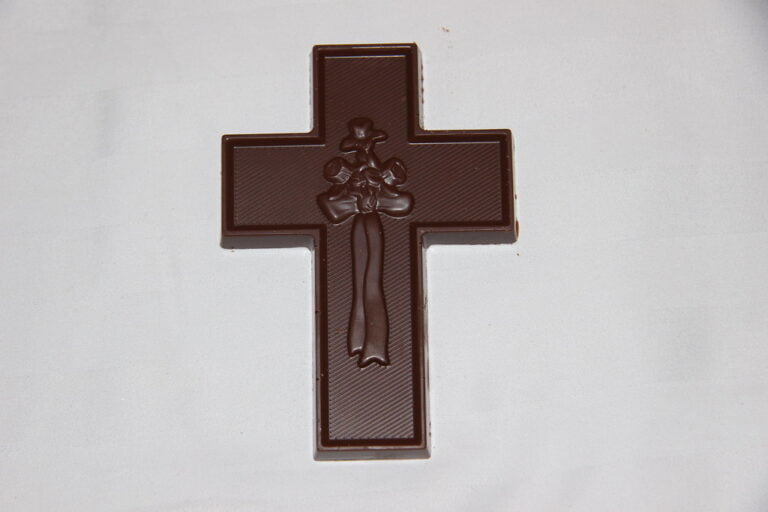As we celebrate various Christian festivals, several traditions and practices make these events memorable and meaningful. One of the most significant traditions during Easter and other Christian celebrations is the sharing and consumption of chocolate. Chocolate has become a crucial aspect of many Christian festivals and celebrations, and in this article, we will explore the role of chocolate in Christian festivals culture and traditions.
The Origins of Chocolate in Christian Celebrations
Chocolate has been associated with Christian festivals for centuries. The first recorded association of chocolate with Easter dates back to the 17th century when Jesuit missionaries introduced the chocolate beverage to the court of King Louis XIV in France. The apostles believed that the chocolate beverage could serve as a tool for converting non-Christians to Christianity. The beverage’s popularity quickly spread across Europe, becoming a luxury and indulgence symbolIn the following centuries, chocolate became integral to Christian culture and traditions. It was used to celebrate various Christian events such as Christmas, All Saints’ Day, and Easter. Today, chocolate is an essential part of many Christian festivals, and its significance is not limited to the Christian faith alone.

The Symbolism of Chocolate in Christian Festivals and Celebrations
Chocolate has several symbolic meanings in Christian festivals and celebrations. The most obvious symbolism of chocolate is its association with luxury and indulgence. During Christian festivals, people often indulge in chocolate to celebrate and enjoy the festivities.
Another significant symbolism of chocolate is its association with the sweetness of life. In Christian teachings, life is often referred to as a gift from God, and chocolate represents the sweetness of that gift. As such, chocolate has become a way of expressing gratitude and appreciation for life during Christian celebrations.
Finally, chocolate is also symbolic of the resurrection of Jesus Christ. In many Christian cultures, chocolate eggs are ordinary during Easter celebrations. The egg shape of the chocolate symbolizes the tomb from which Christ rose after his crucifixion. Chocolate eggs are also a way of celebrating the new life and hope that the resurrection of Christ represents.

The Role of Chocolate in Modern Christian Celebrations
In modern Christian celebrations, chocolate has become essential to the festivities. During Easter, chocolate eggs, bunnies, and other chocolate treats are common in many households. Chocolate is also used to make cakes, cookies, and other desserts shared with friends and family during these celebrations.
Chocolate is not limited to Easter alone. During Christmas, chocolate is used to make festive treats such as yule logs and candy canes. In some cultures, chocolate is also used to celebrate All Saints’ Day, St. Valentine’s Day, and other Christian festivals.
Conclusion
Chocolate is an integral part of Christian festivals and celebrations. Its association with luxury, indulgence and the sweetness of life has made it a symbol of gratitude and appreciation during these events. Chocolate is also symbolic of the resurrection of Jesus Christ and is used to celebrate the new life and hopes that the resurrection represents.
As we celebrate various Christian festivals and celebrations, let us not forget the significance of chocolate in these events. Let us indulge in this sweet treat, express our gratitude for life, and celebrate the new life and hope that the resurrection of Christ represents.
FAQ’s
Q: Why is chocolate associated with Christian festivals and celebrations?
A: Chocolate has been associated with Christian festivals and celebrations for centuries. The first recorded association of chocolate with Easter dates back to the 17th century when Jesuit missionaries introduced the chocolate beverage to the court of King Louis XIV in France. The apostles believed that the chocolate beverage could serve as a tool for converting non-Christians to Christianity. Since then, chocolate has become essential to Christian culture and traditions.
Q: What is the significance of chocolate in Christian festivals and celebrations?
A: Chocolate has several symbolic meanings in Christian festivals and celebrations. It is associated with luxury, indulgence, and the sweetness of life. Chocolate is also symbolic of the resurrection of Jesus Christ and is used to celebrate the new life and hopes that the resurrection represents.
Q: How is chocolate used in modern Christian celebrations?
A: In modern Christian celebrations, chocolate is used to make festive treats such as chocolate eggs, bunnies, cakes, cookies, and other desserts that are shared with friends and family during these celebrations. Chocolate is not limited to Easter alone. During Christmas, chocolate is used to make festive treats such as yule logs and candy canes. In some cultures, chocolate is also used to celebrate All Saints’ Day, St. Valentine’s Day, and other Christian festivals.
Q: What is the history of chocolate in Christian celebrations?
A: The first recorded association of chocolate with Easter dates back to the 17th century when Jesuit missionaries introduced the chocolate beverage to the court of King Louis XIV in France. The beverage’s popularity quickly spread across Europe, becoming a symbol of luxury and indulgence. In the following centuries, chocolate became integral to Christian culture and traditions.
Q: How can we celebrate Christian festivals and celebrations with chocolate?
A: During Christian festivals and celebrations, chocolate can be used to make festive treats to share with friends and family. Some popular chocolate treats include chocolate eggs, bunnies, cakes, cookies, and other desserts. Chocolate can also be used to make hot chocolate, a perfect way to celebrate the cold winter during Christmas and other Christian festivals.
